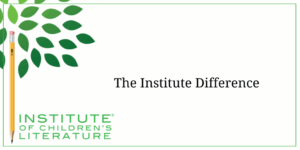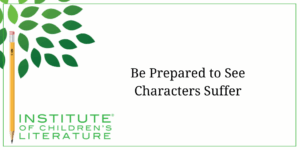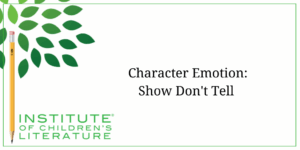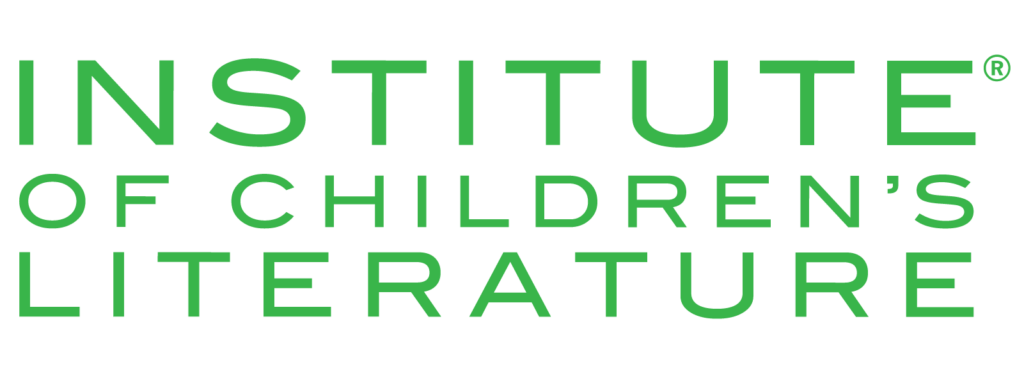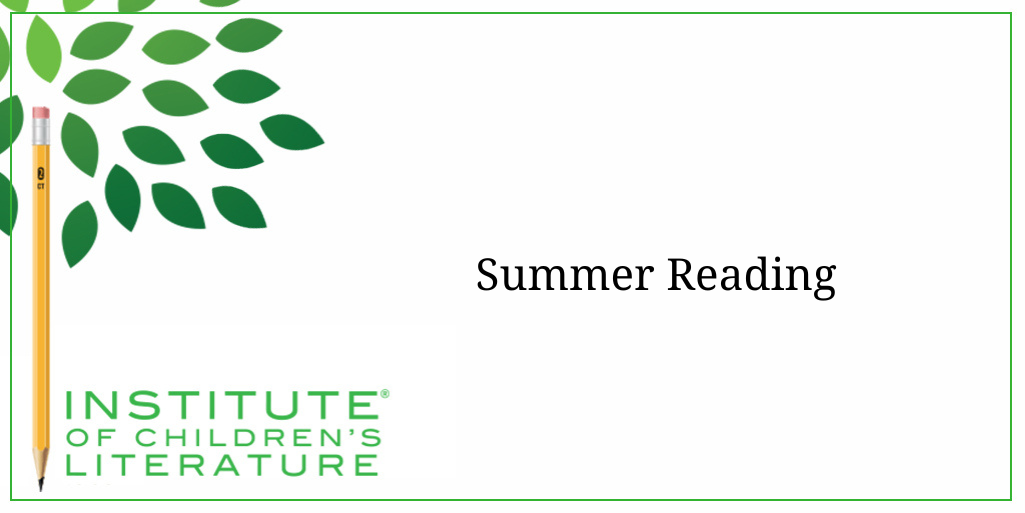
- Date: May 1, 2025
- Author: Jan Fields
- Category: Writing for Children Blog
- Tags: reading for writers, reading list, summer reading
We teach our students how to write and get published!
View our Course Catalog >
Summer Reading
In schools everywhere, the coming of summer vacation means the beginning of summer reading. Schools and teachers come up with lists of quality books as suggestions for summer reading choices. And some schools ask students to go just a bit further and fill out a form or write a blurb for each book they read. The primary goal of summer reading is learning through reading. Reading helps children learn language, how stories are structured, and more. And they learn one other vital thing through this; they learn the joy of leisure reading. At least we hope they do.
But eventually our school days are over, and we never get another summer reading list. But what if we did? What sort of things should a writer put on their summer reading list? 
Creating Your Summer Reading List
The largest part of a summer reading list for writers should be books for the age group you want to write for. Just as reading teaches school children improved reading and writing skills, it can do the same for adults. The more you read good books, the better writer you'll be. And if you read them critically, looking for what the books do well, you'll gradually begin incorporating your own take on such things in your own reading. As you discover characters you love, you'll learn to write fleshed-out, engaging characters of your own. As you think about the emotional core of the books you read, you'll be building skills that will be used in creating an emotional core in your own books.
Summer reading of this sort should be far ranging. You might include a few classic children's books that you never got to read in your own childhood, but you should also include contemporary books. Contemporary books are the ones whose stories caught the eye and the heart of a publisher today. Something about each book convinced a publisher to invest thousands (or tens of thousands) to bring that book to the reading public. Think about the things you would spend tens of thousands of dollars for and then think about this book in your hands. What about it caused the people at the publishing house to believe in the book and to fall in love with it? Each time you discover the answer to that question; you bring your own writing a bit closer to success.
For writers, summer reading doesn't come with the requirement of finishing a book. If you really cannot see why this book would have made the deal with a publisher, then it's probably not the sort of book with a lot to teach you. We learn much more from books we connect with. So don't feel like you must finish a book you strongly dislike. After all, summer doesn't last forever. Still with the books you delight in. They are the ones that will teach you the most.
Go Beyond Kid's Fiction
 Don't forget to include nonfiction in your summer reading list. Kids nonfiction is amazing, and I read it whenever I can. I'll read narrative nonfiction such as Unspeakable: The Tulsa Race Massacre by Carole Boston Weatherford and illustrated by Floyd Cooper and, for older kids, Almost Astronauts: 13 Women Who Dared to Dream by Tanya Lee Strone. I'll read narrative nonfiction picture book biographies such as Shark Lady, a picture book by Jess Keating and illustrated by Marta Álvarez Miguéns, as well as active nonfiction to look at how other authors teach kids how to do something, and expository nonfiction that not only shows me how authors organize and present information but also tends to teach me things I didn't already know.
Don't forget to include nonfiction in your summer reading list. Kids nonfiction is amazing, and I read it whenever I can. I'll read narrative nonfiction such as Unspeakable: The Tulsa Race Massacre by Carole Boston Weatherford and illustrated by Floyd Cooper and, for older kids, Almost Astronauts: 13 Women Who Dared to Dream by Tanya Lee Strone. I'll read narrative nonfiction picture book biographies such as Shark Lady, a picture book by Jess Keating and illustrated by Marta Álvarez Miguéns, as well as active nonfiction to look at how other authors teach kids how to do something, and expository nonfiction that not only shows me how authors organize and present information but also tends to teach me things I didn't already know.
As I read nonfiction, the first thing I do for my writing is improve my own skills in organization. Right now, there is a wealth of narrative nonfiction out there, which tends to be organized chronologically. Still, even within that rough organization, writers will make create their organizational tweaks to make the story engaging, exciting and clear. Keep in mind with nonfiction that clarity is key. If you confuse the readers, they'll abandon you. So, during your summer nonfiction reading, pay special attention to choices the writer makes for clarity.
Adding nonfiction to my summer reading list can show me trends in publishing as well. I can see that active nonfiction (how-to books) which were wildly popular when I was kid seem to be published less now, but we are in a heyday for narrative nonfiction as there are amazing examples of storytelling through nonfiction out there.
Direct Learning as Part of Summer Reading
My summer reading always includes a writing book or two. Sometimes I find writing books don't exactly teach me something new, but they'll do something just as good. They will give me a new way of looking at something I thought I knew all about. That's why I'll cheerfully read a really good grammar book, or a light-hearted look at the publishing process, or a book written for writers of romance novels (even though I don't write romance novels). Reading writing books means getting a peek into someone else's writing journey and learning from how they do what I do. They may do things differently, and I may not ever want to work that way, but I'll think about it. And every time I examine my writing, I grow as a writer.
When choosing books for my summer reading list, I'll ask other writers for recommendations. Social media is great for this. Whenever I ask something like, “What's your favorite book about writing?” I tend to get many, many responses, some of which will be books I haven't read, so I add them to my list. I'll check out best-of lists for kids’ books, as well as looking at as many recently published books as I can, especially books that are getting early buzz. I'll throw in books by writers I have enjoyed in the past. I'll also make it a point to add a few writers or genre I haven't much experience with. If, for example, I haven't read many books set outside the US, I may spend a full month of summer just focused on books set outside the US. 
Now, my summer reading list is always longer than I can actually get through. I love to read, but I have a lot of things on my plate, so I have to recognize that I won't get to them all. But I hold onto the list, because I find publishing tends to hit a lull at holiday time, and I can sometimes finish up my summer reading in the winter when my work slows down and night comes early (keeping me home as I hate going out in the cold and the dark). I don't mind having a list that is too big to finish because it means I'm never without a recommendation, a to-be-read book.
Also, I'll read through my list in whatever way works with my present life demands. I may read some of the books as audiobooks so I can be listening to a book while I'm cleaning or cooking or gardening or even taking a walk. Some people like to be read at bedtime, drifting off to a book from their summer reading list and that works too. I'll also read e-books from my library using Hoopla or Libby because I can put them on my phone and read them when I'm in waiting rooms (and I find I am increasingly in waiting rooms at my age). And finally, I'll have print books for curling up at home because nothing beats the feel of a book in my hands, a feeling that transports me back to my childhood when a new book was a gift and a wonder.
So make your own summer reading list. Include all the books you want to read, and maybe a couple that you think you ought to read. And while you're reading, remind yourself that every single book you read will make you better at writing. It's one of the joys and the magic of reading.
Related Articles for Reading for Writers
With over 100 books in publication, Jan Fields writes both chapter books for children and mystery novels for adults. She’s also known for a variety of experiences teaching writing, from one session SCBWI events to lengthier Highlights Foundation workshops to these blog posts for the Institute of Children’s Literature. As a former ICL instructor, Jan enjoys equipping writers for success in whatever way she can.

